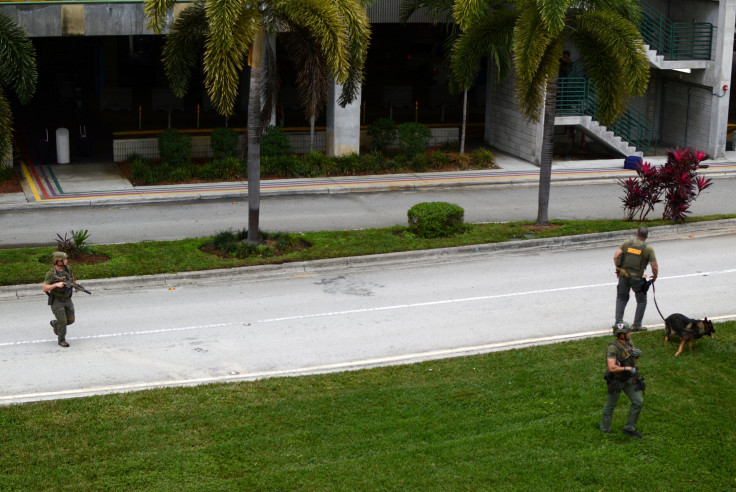Is Esteban Santiago A Terrorist Or Mentally Ill? What We Know About Fort Lauderdale Shooter

Esteban Santiago, the alleged shooter who killed five people at the Fort Lauderdale-Hollywood Airport Friday, was a member of the Alaska Army National Guard until August, an Anchorage NBC affiliate reported. He was also a member of the Puerto Rico National Guard, the Telegraph said.
Santiago, a 26-year-old who most recently was living in Alaska, reportedly took a gun out of his checked luggage and began indiscriminately firing at the crowd near a baggage carousel before he was arrested unharmed. His motive was not immediately known, but evidence emerged that could connect Santiago to both Islamic extremism and mental illness. And he wouldn't be the first U.S. service member to kill those he was sworn to protect for either reason.
Reports circulated on Twitter that indicated the Spanish-language channel Telemundo had interviewed Santiago's aunt, who said he had traveled to Iraq and then "wasn't doing well."
Broward County Sheriff Scott Israel said Santiago was possibly a "homegrown violent extremist," based on his social media habits, the Orlando Sentinel reported. If Santiago killed in the name of radical Islam, he would follow in the footsteps of Nidal Halik Hasan. In 2009, the 39-year-old Army psychiatrist shouted "Allahu Akbar" ("God is great" in Arabic) and opened fire in a Fort Hood, Texas, processing center with a semi-automatic pistol, killing 13 people.
Other reports indicate Santiago suffered from mental health issues. Santiago told authorities he heard voices that told him to join the Islamic State group, CNN reported. That would suggest possible jihadist motives and mental illness were not mutually exclusive.
Santiago's brother, Bryan Santiago, told The Associated Press his family got a call from Santiago's girlfriend indicating he was being treated for mental health issues in Alaska. He didn't know why his brother was receiving treatment.
In 2009, Aaron Alexis, 34, a former Navy reservist working as a government contractor killed 12 people at the Washington Navy Yard where he was working before he was killed by police. After the shootings, investigators found evidence that Alexis believed he was being attacked by radio waves.
"An ultra low frequency attack is what I've been subject to for the last three months, and to be perfectly honest, that is what has driven me to this," Alexis wrote in documents found by investigators. It remains to be seen whether investigators will find similar documents offering insight into what drove Santiago to kill.
© Copyright IBTimes 2024. All rights reserved.






















